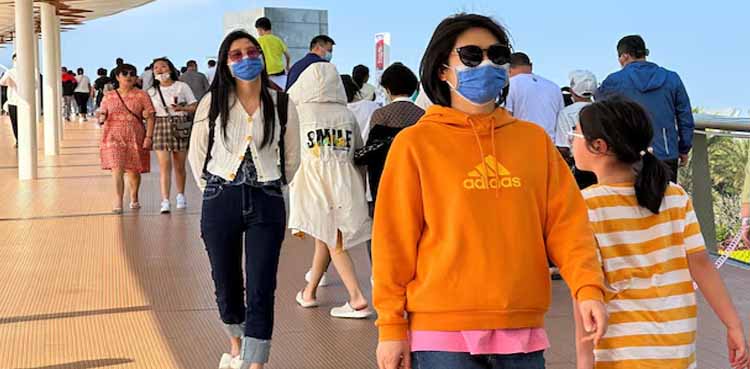
A notable increase in infections attributed to human metapneumovirus (HMPV) has been observed in China, prompting the authorities to enhance their screening, detection, and isolation measures in response to unidentified pathogens.
This situation has raised alarms due to its resemblance to the COVID-19 pandemic. Reports and videos circulating on social media indicate that hospitals and crematoriums are becoming inundated, with some sources claiming that multiple viruses, including influenza A, Mycoplasma pneumoniae, and COVID-19, are concurrently in circulation.
Despite these concerns, there has been no official announcement regarding a state of emergency.
The National Disease Control and Prevention Administration has implemented a monitoring system to observe pneumonia cases of unknown origin, anticipating an increase in respiratory illnesses throughout the winter months.
What are the symptoms of HMPV?
The symptoms associated with HMPV closely resemble those of influenza and other respiratory infections. Common indicators include cough, fever, nasal congestion, and shortness of breath. In more severe instances, the virus may lead to complications such as bronchitis or pneumonia. The incubation period for HMPV typically ranges from three to six days, with symptom duration varying based on the severity of the infection.
Read also: Bird flu virus shows mutations in first severe human case in US, CDC says
How does HMPV spread?
HMPV transmits in a manner similar to other respiratory viruses. Transmission occurs through:
- Secretions from coughing and sneezing
- Close personal contact, such as handshakes or touching
- Contact with contaminated surfaces followed by touching the mouth, nose, or eyes
HMPV presents a heightened risk to specific groups, including:
- Young children
- Older adults
- Individuals with compromised immune systems
When should you consult a physician?
As advised by the Cleveland Clinic, it is important to seek medical attention if:
If you or your child exhibit symptoms of a respiratory infection and have an underlying condition that may heighten the risk of complications, it is important to monitor the situation closely. Should symptoms persist or deteriorate after several days, or if a fever continues for more than three days without any signs of improvement, seek medical advice.
How to Prevent HMPV?
Preventive strategies for HMPV align closely with those recommended for other respiratory infections. Consider the following guidelines:
- Regularly wash hands with soap and water for a minimum of 20 seconds.
- Refrain from touching the face with unwashed hands.
- Maintain a safe distance from individuals displaying symptoms of illness.
- Disinfect frequently touched surfaces, including doorknobs and toys.
What Should Individuals Experiencing HMPV Symptoms Do?
Individuals showing symptoms of HMPV or a common cold should adhere to basic hygiene practices to help curb the spread of the virus.
- Cover the mouth and nose: Utilize a tissue when sneezing or coughing to contain droplets.
- Wash hands frequently: Regular handwashing with soap and water for at least 20 seconds can significantly reduce transmission risk.
- Avoid sharing personal items: Refrain from sharing utensils, cups, or other personal belongings to minimize the risk of infecting others.
- Stay at home: If feeling unwell, it is advisable to remain at home and rest to prevent spreading the virus to others.
Is there a treatment or vaccine for HMPV?
Currently, there is no specific antiviral treatment or vaccine available for HMPV. Medical management for those infected is primarily supportive, aimed at alleviating symptoms and preventing complications.
How does HMPV compare to COVID-19?
HMPV and COVID-19 exhibit numerous similarities, as both can lead to respiratory issues such as coughing, fever, congestion, sore throat, and shortness of breath, and both are transmitted through respiratory droplets, as noted by WebMD.
Severe cases may necessitate hospitalisation. HMPV generally peaks during the winter and spring seasons, in contrast to COVID-19, which can circulate throughout the year due to the emergence of new variants.
Research indicates that HMPV cases have tripled in certain areas following the relaxation of COVID-19 restrictions, attributed to reduced exposure to viruses during that period.
from International News Today - Breaking News, US News, World News https://ift.tt/my8WY4H




